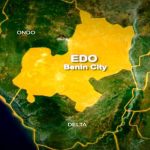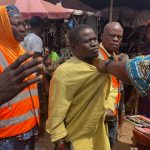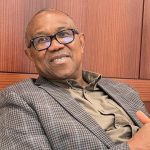The Presidency has contested the World Bank’s latest economic report, which estimates that around 139 million Nigerians are currently living in poverty.
The government described the figure as exaggerated and misaligned with prevailing realities on the ground.
The figure marks a rise from the 129 million reported in April 2025. Reacting to the development, President Bola Tinubu’s Special Adviser on Media and Public Communication, Sunday Dare, issued a statement on Wednesday via his official X handle, stressing that the World Bank’s poverty estimate requires proper contextualisation within the broader framework of global poverty assessment models.
“While Nigeria values its partnership with the World Bank and appreciates its contributions to policy analysis, the figure quoted must be properly contextualised. It is unrealistic,” Dare stated.
The Presidency explained that the World Bank’s estimate was derived using the international poverty line of $2.15 per person per day, a metric established in 2017 based on Purchasing Power Parity (PPP). It cautioned that the figure should not be mistaken for a literal count of Nigerians living in poverty.
The statement elaborated that when adjusted to nominal terms, the $2.15 threshold translates to approximately N100,000 per month at current exchange rates, which exceeds Nigeria’s new minimum wage of N70,000. It also highlighted limitations in the methodology, noting that the PPP framework relies on outdated household consumption data from 2018/2019 and does not adequately reflect Nigeria’s informal and subsistence-driven economy.
“There must be caution against interpreting the World Bank’s numbers as a literal, real-time headcount,” the Presidency asserted. “The figure is an analytical construct, not a direct reflection of local income realities.”
Dare maintained that the World Bank’s poverty figure represents a theoretical projection rather than an accurate depiction of socioeconomic conditions in 2025. He emphasised that the Tinubu administration is focused on transforming economic realities rather than engaging in disputes over static data.
He pointed to a number of ongoing economic and social initiatives under the Renewed Hope Agenda, which he said are designed to mitigate the impact of reforms and lay the groundwork for sustained economic growth. These include the Conditional Cash Transfer programme, which now reaches 15 million households using a digitally verified National Social Register; the Renewed Hope Ward Development Programme, which targets all 8,809 electoral wards with grassroots infrastructure projects; and the expansion of existing National Social Investment Programmes like N-Power, GEEP micro-loans, and school feeding initiatives aimed at boosting employment, business growth, and access to education.
In addition, Dare mentioned agricultural interventions such as the distribution of subsidised grains and fertilisers, the revival of strategic food reserves, and mechanisation efforts aimed at stabilising food prices. He also highlighted the Renewed Hope Infrastructure Fund, which is supporting key investments in road, housing, and power projects to lower living costs and drive job creation. Meanwhile, the National Credit Guarantee Company is facilitating access to affordable loans for small businesses, women, and young entrepreneurs through risk-sharing partnerships with commercial banks.
The Presidency reaffirmed that the administration is tackling the root causes of poverty by addressing long-standing structural challenges that have hindered productivity and inclusive growth. It cited reforms such as the removal of fuel subsidies, exchange rate unification, and the redirection of fiscal resources toward productive sectors as “painful but necessary choices” intended to rebuild the economy.
It further noted that even the World Bank has acknowledged the early success of these measures in restoring macroeconomic stability and improving growth prospects. However, the government stressed that macroeconomic recovery must ultimately translate into tangible improvements in the lives of ordinary Nigerians.
The statement added that medium-term priorities include making food more affordable, expanding access to quality jobs, and developing reliable infrastructure. Investments are underway in sectors such as agriculture, manufacturing, and energy, including new gas-to-power projects and the establishment of skill development centres to reduce unemployment and improve living standards.
The Presidency also disclosed efforts to consolidate and expand Nigeria’s social protection framework through a unified, data-driven system that ensures transparency and broad inclusion. This includes expanding the National Social Register and enhancing existing safety net programmes to deliver targeted assistance to vulnerable households.
It reiterated President Tinubu’s commitment to building a resilient and inclusive economy that directly improves citizens’ living conditions. “Nigeria rejects exaggerated statistical interpretations detached from local realities. The government remains focused on empowering households, expanding opportunity, and laying the foundation for a fairer, more prosperous nation,” the statement concluded.
Earlier on Wednesday, the World Bank released its October 2025 Nigeria Development Update titled “From Policy to People: Bringing the Reform Gains Home.” In the report, the Bank’s Country Director for Nigeria, Mathew Verghis, estimated that 139 million Nigerians are living in poverty despite recent economic stabilisation efforts.
Verghis praised the Tinubu administration for implementing significant reforms in exchange rate and petroleum subsidy policies, describing them as “foundational” for long-term economic transformation. “Over the last two years, Nigeria has commendably implemented bold reforms, notably around the exchange rate and the petrol subsidy. These are the foundations on which the country has the opportunity to build a programme that can transform its economic trajectory,” he stated.
However, he cautioned that the benefits of these reforms have yet to reach a majority of Nigerians. “Despite these stabilisation gains, many households are still struggling with eroded purchasing power. Poverty, which began to rise in 2019 due to policy missteps and external shocks such as COVID-19, has continued to increase even after the reforms. In 2025, we estimate that 139 million Nigerians live in poverty,” Verghis added.











